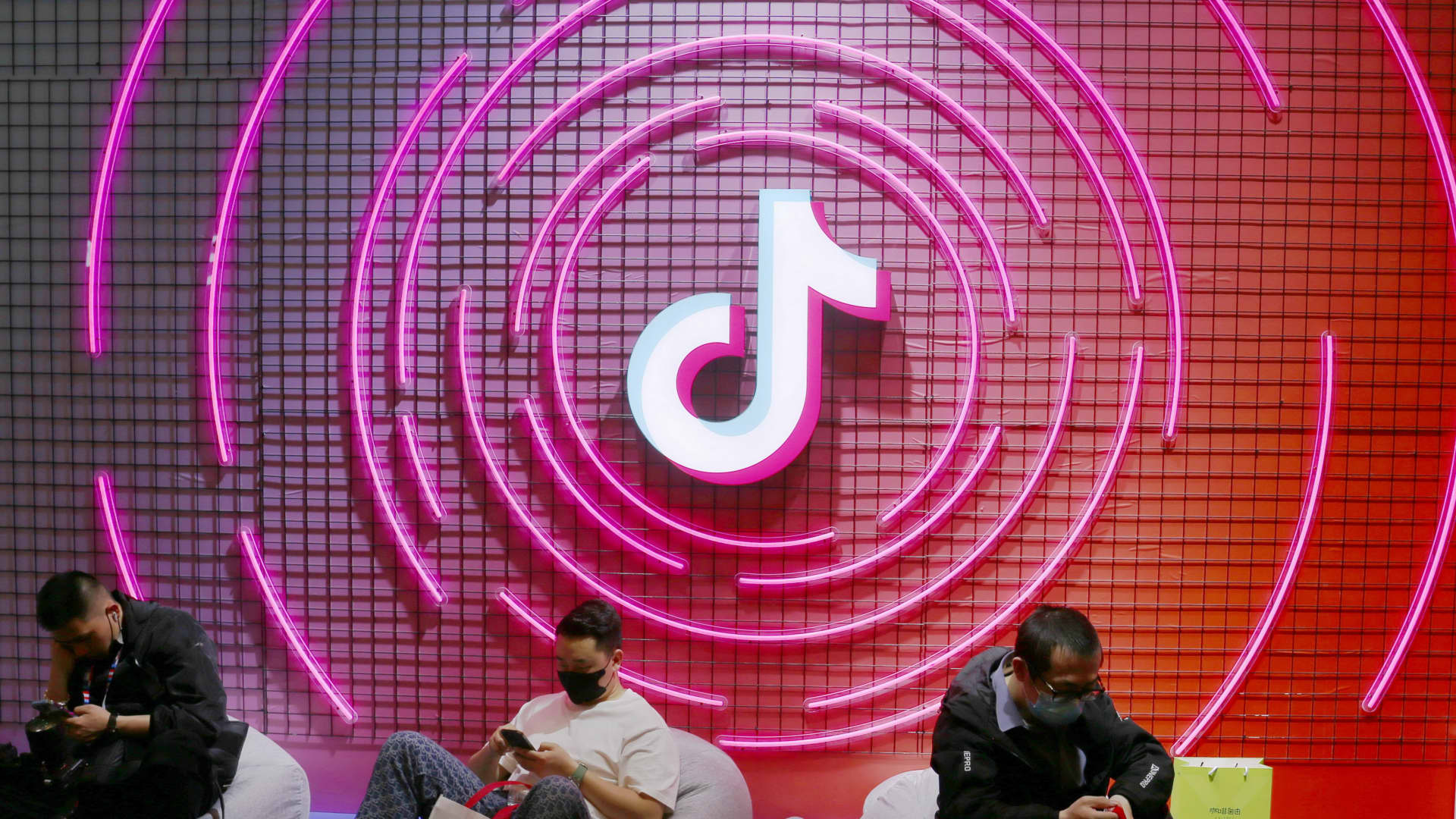Visitors visit the TikTok booth at the Appliance & Electronics World Expo (AWE) in Shanghai, China, on April 27, 2023. On March 14, 2024, the United States will pass a bill banning TikTok.
CostFoto | Nurphoto | Getty Images
The US may be about to force ByteDance, the Chinese tech giant that owns TikTok, to divest its US business or effectively ban the app.
But a sale looks unlikely – not least because China is expected to block it.
The House of Representatives on Wednesday approved a bill that would require ByteDance to divest TikTok, the social media platform it owns, within roughly six months so the app “can remain available in the United States.” This bill is not yet law and needs Senate approval.
Washington has long argued that TikTok poses a national security threat because American data could fall into the hands of the Chinese government.
US lawmakers are also concerned about the short video app’s alleged ties to the Chinese Communist Party, which the company has denied.
However, if the bill is passed, the Chinese government is unlikely to approve the sale of TikTok’s American business.
“The problem is that the Chinese government is unlikely to approve this type of forced … M&A,” Paul Triolo, associate partner at consulting firm Albright Stonebridge, told CNBC’s “Street Signs Asia” on Thursday.
“Any kind of sale and then a merger with another company or an acquisition would have to be approved by the Chinese government, which would probably reject that and probably advise ByteDance that it would reject that.”
What did China say?
Wang Wenbin, a spokesman for China’s Ministry of Foreign Affairs, said Thursday that the U.S. bill was “contrary to the principles of fair competition and international trade rules,” according to a translation by NBC News.
“If the pretext of national security can be used to arbitrarily suppress excellent companies from other countries, there is nothing to speak of justice and fairness. The complete logic of theft is to see something good and try to take it for yourself by any means manner necessary.”
China is expected to block a deal, not least because this is not the first time the issue has arisen.
Last year, the US Committee on Foreign Investment in the United States (CFIUS) told ByteDance to quit TikTok or face a ban. At the time, Shu Jueting, a spokesman for China’s Ministry of Commerce, said the country would “firmly oppose” the US move to force the sale of TikTok.
The TikTok algorithm at the center
Further complicating the sale is TikTok’s algorithm. This is the app’s “secret sauce” and is the technology that allows it to recommend content to users to keep them engaged.
Last year, when CFIUS told ByteDance to sell TikTok, China’s Shu hit back, saying that a spin-off or sale would effectively mean exporting that technology, which must go through administrative licensing procedures.
China would have to approve the transfer of the algorithm as part of the sale, Triolo said — something that seems highly unlikely.
And it’s hard to see how TikTok’s American business can be separated from the algorithm if China doesn’t want that to be part of the deal. TikTok requires the algorithm to function.
“This algorithm is Chinese domestic technology and the Chinese state has repeatedly said so [it] considers technology like this important to its national security. Therefore, it will not allow Chinese technology of this nature to leave its shores or be in the hands of countries it considers unfriendly,” said Richard Windsor, founder of research firm Radio Free Mobile, in a note published Monday.
“This makes severing ties between ByteDance and TikTok USA very problematic because TikTok USA needs the algorithm to function, but it would go against the wishes of the Chinese government and the laws it has put in place.”
The big appreciation of TikTok
TikTok is one of the biggest social media apps in the world, posing a serious challenge to people like the owner of Facebook Meta and A click. TikTok was the most downloaded social media app in the US in 2023, according to market analysis firm Sensor Tower.
This makes TikTok a hot property. Angelo Zino, vice president and senior equity analyst at CFRA Research, told CNBC that it’s possible that TikTok’s business in the U.S. alone “could reach a valuation north of $60 billion.”
With uncertainty surrounding the algorithm, however, and Chinese government approval looking unlikely, it’s far from certain that TikTok’s US sale will even make it to the evaluation stage.
— CNBC’s Jonathan Vanian contributed to this report.
https://www.cnbc.com/2024/03/14/tiktok-ban-china-would-block-sale-of-short-video-app.html







